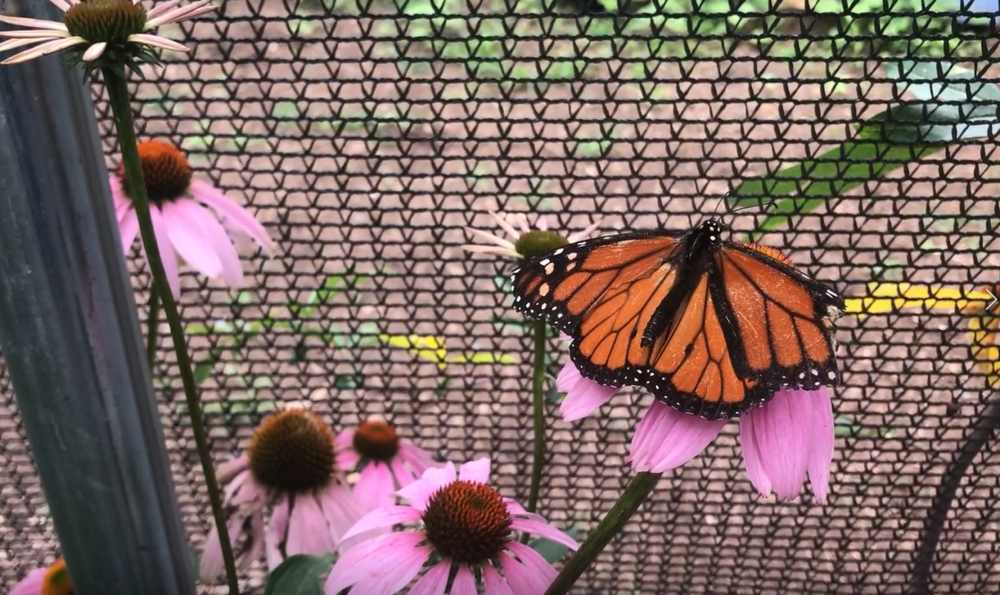Section Branding
Header Content
Kennesaw Garden Hosts Butterfly House Amid Pollinator Decline
Primary Content
No other insect has inspired Lisa Bartlett like the butterfly.
“There’s something about the metamorphosis, the secret, the mystery behind how they turn into a butterfly as a caterpillar,” said Bartlett, the garden manager of Smith-Gilbert Gardens in Kennesaw.
For the past several months, she has collaborated with volunteers to create the garden’s third annual butterfly house as part of its “Garden With Wings” pollinator exhibit, which opened June 18 and runs until July 31.
Unlike many other Georgia butterfly houses, this exhibit’s butterflies are native, and its accompanying pollinator garden uses indigenous plants that can thrive in Georgia soil.
Part of the purpose of this exhibit is to educate visitors about the threats that Georgia’s pollinators face, and give them inspiration for their own pollinator gardens.
Mark Wolfe, Smith-Gilbert Gardens’ environmental education and communications manager, said that Atlanta’s constant construction creates rapid habitat loss for sensitive pollinators that cannot adapt fast enough to the change. The drive for immaculate, sprawling suburban lawns also destroys crucial food sources such as native weeds and trees.
A 2014 study by the University of Georgia found that Georgia’s pollinators contribute more than $360 million to the state’s economy, but Bartlett is especially concerned about the pet bees that she keeps in the garden’s aviary. They are so sensitive to insecticides and herbicides that they are affected by spraying in nearby neighborhoods.
“I think we need to rethink the American landscape, honestly,” said Bartlett, who feels that the pesticide-free Smith-Gilbert Gardens demonstrates that gardens can be beautiful without chemicals.
For people who don’t have a lot of time or space to spare, the garden sells small, pre-made pollinator gardens. Bartlett said that it is easy to just make a pollinator garden in a pot or build a small bee house.
She also encouraged all Georgia residents to educate themselves on which plants are important for wild animals. Residents often kill Georgia plants like the milkweed, the number one food source for migrating Monarch butterflies, a species that is currently under review for protection under the Endangered Species Act.
Protecting pollinators goes beyond just protecting butterflies and honeybees, though. Less glamorous pollinators like Georgia’s native ground bees, ants, slugs, and wasps also aid aspects of crop production like decomposition and pest control.

